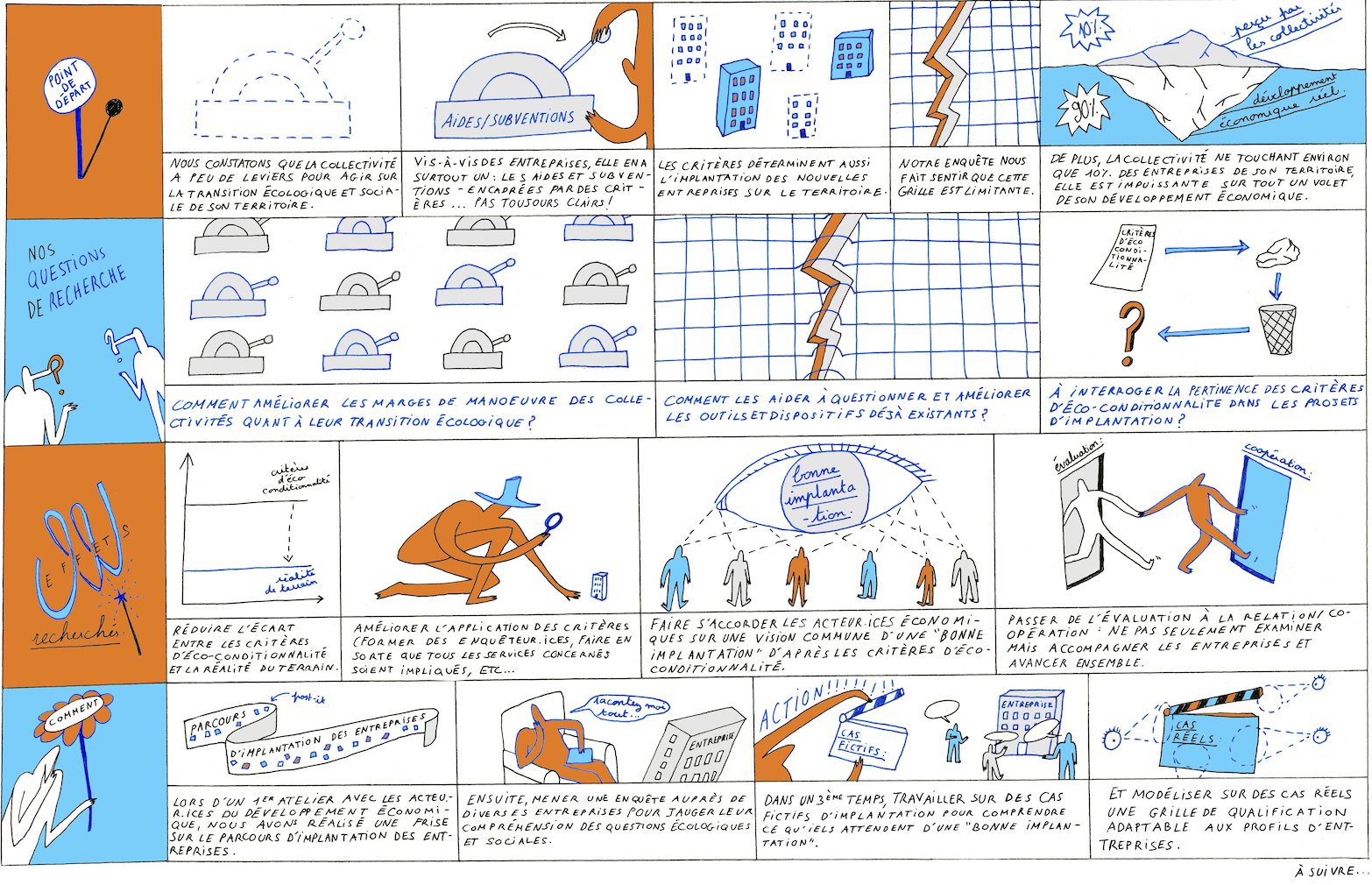In Montpellier, we wanted to take a look back at how companies set up shop, with one question in mind: How can the new social and environmental paradigm be better reflected in business location support? How can we better understand what is at stake in the first exchanges, so as to guide the relationship between the community and companies in a different direction?
The first stage took the form of an internal workshop, bringing together several partners involved in the process (CCI, Ancorys for sourcing, etc.). Together, we reconstructed the process from the metropolis’ point of view. A number of findings emerged.
Firstly, qualification of the project via the evaluation grid comes rather late in the process, often at a time when discussions with the company are already well underway. Secondly, the criteria used struggle to take into account the specific nature of each project’s activities or the scope for progress. Finally, we have identified the first interview as a key moment : it enables us to better understand the company’s activity and the maturity of its project, but its content remains difficult to share or objectify, in the absence of a common support for the agents.
This was the starting point for the idea of prototyping an interview guide. Initially conceived as a “variable geometry” tool, adapted according to company typology, it was progressively simplified to be based on impact typologies, assessed qualitatively (not applicable, weak, medium, strong). Two additional sections have been added: one to provide information on possible compensation measures, and the other to show certain indicators transmitted by the company (commitments, weak signals, ongoing elements).
But beyond the tool itself, it was the local authority’s position that was at stake. The aim: to build a relationship of trust in which the metropolis, via its implementation department, positions itself not just as a facilitator, but as a partner capable of advancing its own objectives of transition and territorial development.
This work also provided an opportunity to align skills internally, formalize a common monitoring tool… and test it. This was the aim of the workshop held on June 27, with three companies who have already gone through or are still going through the implementation process. The aim was not to add anything new, but rather to gather their points of view, check the tool’s readability, and enrich the prototype based on their feedback.
Last but not least, this experiment highlighted an often invisible role: that of the implementation department as an interface. Through its ability to understand the needs and workings of companies, this service plays a genuine role in internal referral, between management, technical services, economic logic and environmental requirements. It’s a role that goes beyond location in the strict sense of the term, and calls for a broader rethinking of the interface between local authorities and companies.


